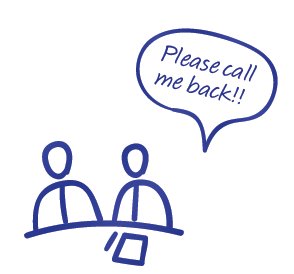Resolutions to avoid doing things that annoy clients the most

Clients will, understandably, get upset if they are treated badly or confronted with surprises. Make sure you appreciate how your words, actions, or inactions can annoy or even distress your clients. Here are some resolutions you can make to avoid doing the most common things lawyers do that annoy clients:
- I will promptly return phone calls: Unacknowledged or unreturned phone calls are some of the most common complaints about lawyers. To avoid these problems, set and control client expectations at the very start of the relationship. Establish a reasonable policy on how quickly calls will be returned (e.g., within 24 hours, by the end of the next business day, or whatever is appropriate for your area of law or clients). Inform the client of the policy, and abide by it. Set up a mechanism for staff to return calls within the established timeframe if you are not available.
- I will promptly reply to e-mails: In like fashion, emails that go unanswered are also a common client complaint. Some clients expect virtually instant answers to e-mail messages. Control this expectation by setting a policy on email communications (e.g. how and whento communicate by email, how long replies will take, alternative contacts and alternatives to email).
- I won’t make clients wait in reception: Do you remember how you felt the last time you were made to wait for an appointment when you had arrived on time? Don’t make your clients feel the same way. Get off the phone or stop whatever else you are doing if a client is waiting for a scheduled appointment.
- I will deliver on promises of performance: When it comes to deadlines, you can guarantee a happy client if you under-promise and over-deliver. Be realistic and don’t make promises to deliver if you cannot keep those promises. Be realistic in your assessment of what you can accomplish and by when. In like vein, be careful not to promise an unlikely or impossible outcome or resolution on a matter. Extra caution is warranted here as clients will hear what they want to hear when it comes to a promised outcome. To protect yourself, clearly document your advice to clients on what the expected outcome will be.
- I will be prepared for client meetings: Don’t kid yourself – clients can instantly tell when you are not prepared. Shuffling through papers, using the wrong names or facts, and other similar clues make clients think to themselves that they may have the wrong lawyer. Make sure you are properly prepared for client meetings.
- I will keep my clients informed and will communicate with them during long periods of inactivity: Clients always want to feel their matter is moving toward a resolution. But in litigation and other areas of law there can be long periods of inactivity as a matter of course. Keep them informed of the status of a matter and when they can expect it to move forward. Send copies of all incoming and outgoing correspondence to the client.
- I will not send large bills without warning or explanation: This scenario calls for an in-person meeting to explain the charges to the client. Better yet, avoid it altogether with a strict retainer policy.
- I will apologize if I fall down on the level of service my clients deserve: If you fail to do any of the forgoing things or otherwise come below an acceptable level of client service, acknowledge it to them, sincerely apologize, and make sure it doesn’t happen again.
Click here to see the full list of resolutions taken from New Year’s resolutions for a healthier law practice and a new you, which appeared in the December 2012 issue of LAWPRO Magazine.

January 11, 2013 at 3:20 pm, Michael A. Spensieri PhD said:
It is essential to establish, at the very outset, what counsel can realistically do in terms of getting back to her client as well as a hierarchy of what the lawyers`s subordinate or subordinates are permitted to do. I have an understanding that I will hear from my lawyer within 48 hr (telephone, voicemail, email &c). If there is a need to speak with other third parties (LawPro, other counsel, opposing vounsel) then I would ask the legal Assistant to co-ordinate. This co-ordination is crucial. If counsel feels that the best medium is a conference call, all parties will be in place. The same goes for exchanging documents etc. required to make the conference call successful.
August 22, 2014 at 11:40 am, Quincy said:
test